Harry & Meghan on Netflix review: their truth, no doubt, but not the whole truth
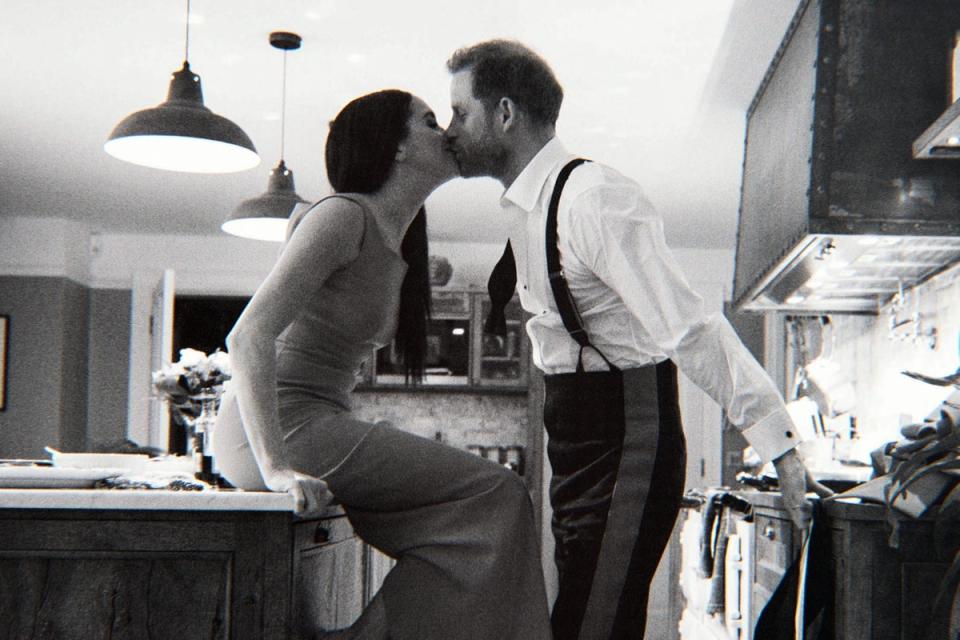
Conventionally in TV world, there would be a major documentary on Meghan and Harry’s riveting story of love, loss and royal disaffection to be made, in which, seated decorously on a sofa, we would hear the couple’s point of view, with balancing coverage from defenders of the present raft of royals or their porte-paroles. Netflix ‘s Harry and Meghan (note the diplomatic order of the stars), is very much not that. Instead, it is the supreme iteration of a form the couple have already embraced with proven impact – the “Oprahfication” of confessional television, and its claim that a single lens on lived experience is the “real” truth when, as the late Queen’s spokesman carefully put it, “recollections may vary”.
Credit where it’s due, the couple turn out to be adept at this mode, having had a warm-up outing with the queen of the format, Oprah Winfrey last year, which aired their unhappiness about the Duchess of Sussex’s treatment on arriving in the royal fiefdom, and raised the spectre of racism in the bosom of the (real-life) Crown. That however, was a mere warm-up for the sheer sound and fury of this multi-part reckoning with the monarchy and its tentacles.
We begin with the unforgettable image of Meghan, make-up free, flowing locks wrapped in a bathtowel (albeit in a perfectly ironed shirt and top-notch manicure, because Meghan in distress is never as disheveled as a normal upset mortal), sitting on the bed in Canada, asking tearfully of their abrupt “Megxit” from the royal family in 2020, “What just happened? I don’t know where to begin. I don’t know what to say.”
No fear, plenty more will be said at length over the next three hours (with another three to come next week) of intimate revelation, reflection and revenge. The net effect of being immersed in a screenfest of gorgeous photo shoots and copious Insta-moments of the loved-up duo is the TV equivalent of a long bath in heavily scented oil, interspersed with sporadic blasts of icy water. Feuds and family friction are well-packaged into the narrative by director Liz Garbus.
Put aside all the warm and fuzzy stuff – which has its charm in the unguarded recollections of a genuine prince-and show-person romance – and the meat of this series is trial-by-television, with a single ‘J’accuse” point: that the commercial British media and royal communications machine are, as Harry puts it “in on it”.
The “it” is the misery allegedly meted out to Markle, as royal fiancée, and later in the couple’s frustration about their role and entitlements after their marriage in 2018. The sheer amount of self-recorded footage hints that, from the get-go, the couple wanted to build their own archive of events.
It is a thoroughly millennial tale, which will irk older viewers in their preening for the lens but appeal heartily to younger ones, who will doubtless think they are onto something in taking on the hidebound world of parents everywhere.
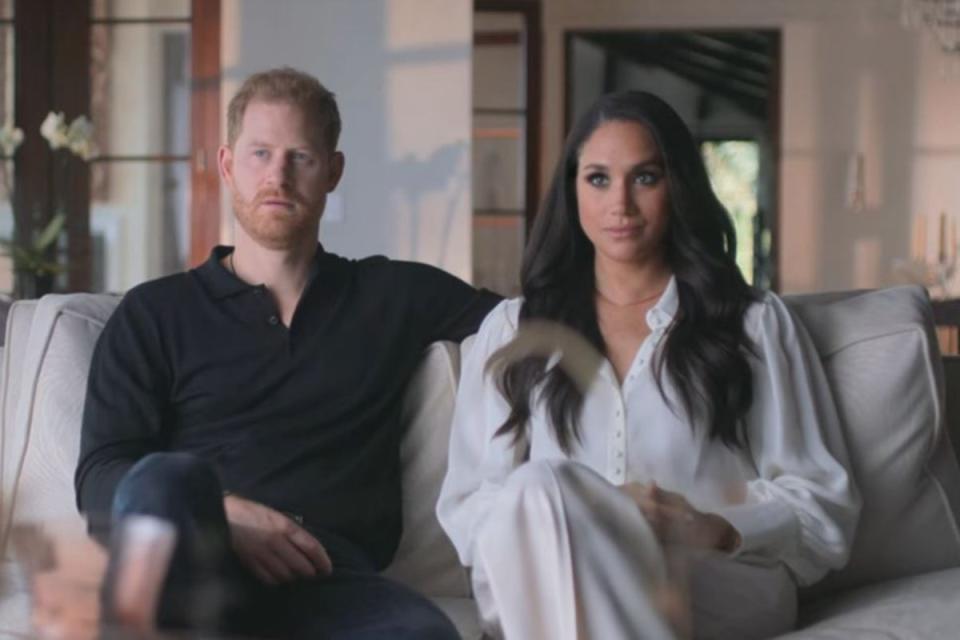
Say what you like about Meghan-as-manipulator – the core charge of those who loathe her – but she nails the screen-story arc and the necessary jeopardy. When she shows us and “H” (a familiarity which has some grating echoes of Jane Austen’s Mrs Elton in Emma, talking queasily about her cara sposa ) how she made an awkwardly cartoon curtsey to the late Queen, we see rare moment when the Duke of Sussex, aka H, looks a little out of his comfort zone. It is one thing to attack the rigid constraints of growing up as son to King Charles, but still another to suggest that the much-loved late Queen was “in on it”.
We are assured filming was concluded by August 2022 – i.e. before the Queen’s death, but that hardly stops us wondering whether she too is implicitly in the couple’s sights.
Harry is also no slouch at storytelling, and still angry about his upbringing and press intrusion. In that sphere, his mother Diana is the other star of this couple’s life story – and her centrality to this account will reawaken old feuds about the events leading to her death. There was, he recollects, rarely a holiday without someone jumping out of a bush to snap photos: “Drama, stress and tears. I could see it on my mum’s face.”
It segues into the assertion that the decision to leave his role in the core royal family was a necessity to “protect my family”, to avoid, “history repeating itself”.
At the start of the second episode, the couple are ensconced across the Atlantic but still evading photographers. They want more royal protection, which they are told they can’t have, as non-working royals. We never discover why they are keen to still be the Duke and Duchess of Sussex, if the deal is so grim, except we can guess that a title is better than no title, even when slings and arrows are going to be directed at the institution they seem to want to keep reforming by leaving it.
Things gets a bit circular, but liven up when Doria Ragland, Meghan’s mother, who played a silent, graceful part at the wedding, appears, this time with a glint in her eye and “ready to have her voice heard, that’s for sure”.
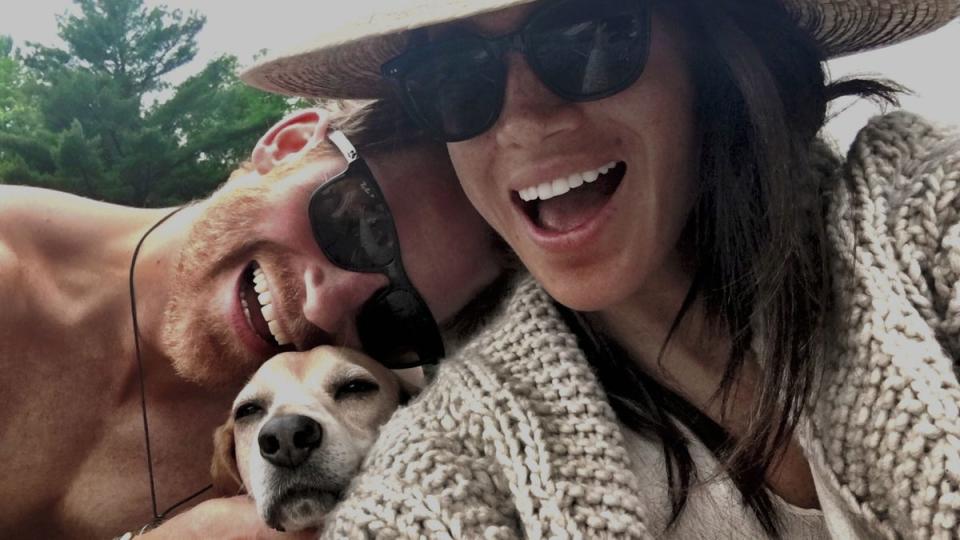
She tells Meghan that she believes the pressure and criticism levelled at her daughter on joining the royal family is “all about race”. In one sense, you can’t fault the experience of a dignified, smart woman who has experienced having the N word yelled at her in a fracas over parking. But a lot of American attitudes, arguments and frictions are then super-imposed with a glib patina on the UK, not least in another awkward segment in which Harry tells us that the Leave vote in 2016 was all about immigration, which was, he purports, all about race.
That said, there are properly scores to be settled. But what are they really asking for, beyond a control of the press, which would not be possible in a democracy? The clash here is between how they feel they should be treated (which is, basically, honoured) and a rambunctious, scrappy fourth estate.
“Do we have to live like this?” Meghan asks at one point, of being hounded by photographers, who often turn out to be from US-based entertainment websites like TMZ, informed by information sold by her father Thomas Markle and by European royal-hunters. We would not know this from the images of British media flashed up as the main Jacobean villains.
But there is another one about to be flashlit – in the form of her sister-in-law, now the Princess of Wales; “Catherine”, as Harry calls her with chilly propriety, attending to royal protocol before a stiletto or seven are wielded.
Meghan goes to the first social encounter with William and Catherine-or-Kate in “jeans and barefoot”, bearing hugs, which are, apparently, “jarring” for us buttoned-up Brits, which is code for saying that her intended sister-in-law behaved as a cold fish from the shires. Cue a cutaway to Kate in clinical white dress and prissy hat, looking about as welcoming as Mrs Danvers to the ingenue incomer in Daphne du Maurier’s novel-noir, Rebecca.
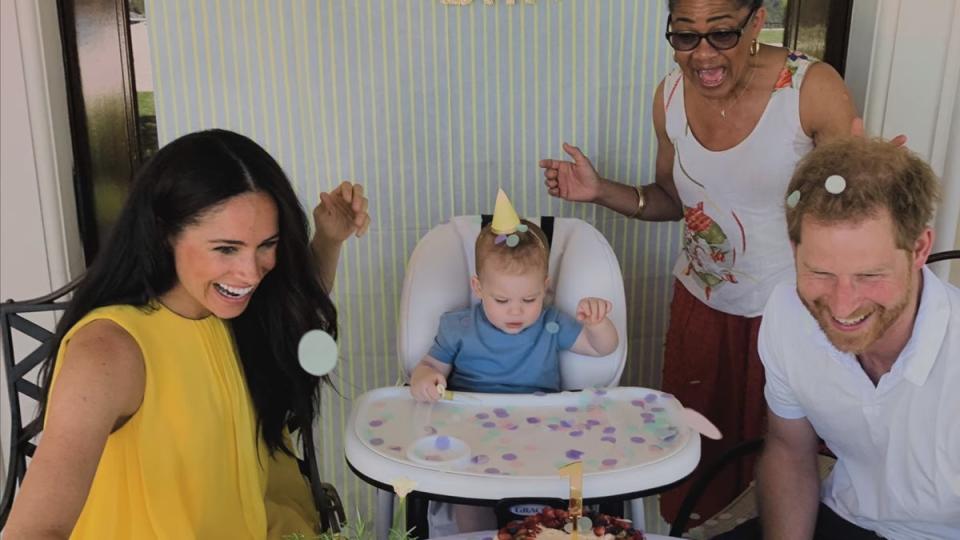
It is a single telling image of estrangement between the couples who were (briefly) the “fab four” and are now intractably the ”four at war”. It gets worse when Harry tells us in the third episode that he was expected to “marry someone who will fit the mould”, as opposed to someone you are destined to be with. Ooof. The implication that William has “settled” for Kate is hard to miss and, given the couple’s insistence that the royals are not warm or humane enough, a pretty harsh aspersion. That charge will sting the Waleses, and while they will likely not respond, inhibit the chance of a future rapprochement.
The politics of all this, unsurprisingly, fit the West Coast default view of Britain as a vaguely backward place and subject for post-colonial studies. We are told repeatedly that this is an institution built on exploitation, and the Commonwealth is dismissed by a commentator as “Empire 2.0”, which even by the standards of this “lens” feels like an ungracious accountr of the Queen’s efforts to connect to former colonies and other member states. Notably, a lot of committed people of colour are also involved in this work, but somehow they don’t figure in this take.
It’s almost a relief to get out of the lecture hall and back to the “other” family feud with Thomas Markle, a sad tale of daddy’s girl affection turned to mistrust and betrayal in circumstances which still feel opaque.
“She doesn’t have a father” says Harry, who has enough paternal issues of his own to contend with. Somehow, in the guise of telling their truth, the couple move further and further away from any possibility of reconciliation. Harry also sends a huge Exocet aimed squarely at the royal press corps, who are, he says, “an extended PR arm of the royal family. It’s an agreement that has been there for over 30 years”.
“It comes down to control. Our trauma is theirs to control,”he continues. This is quite a claim, because it widens the blame game from rapacious journalists to the entire royal comms operation. In one sense, it is shrewd of Harry to nail the fact that there has long been a “contractual” relationship between royals and the press, to the perceived benefit of both. The alternative would be a world in which people did not lap up stories about people connected to or estranged from the royal family – or heftier privacy laws, which means we would know even less about the nation’s first family.
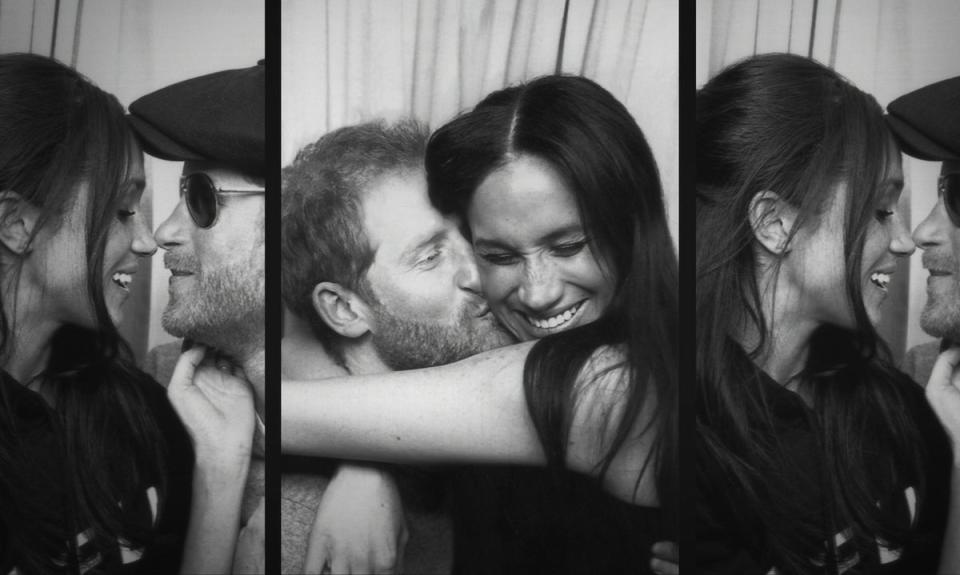
Key omissions are any reflection on the different but also exclusive bubble they have come to inhabit, while continuing to use the Duke and Duchess title. Can they have it both ways? In this feast of neo-royal cake-ism, the answer is an affirmative, “You bet”, with a podcast series, the Netflix deal and sundry other commercial projects ahead to prove it .
The trouble with Britain is nicely encapsulated in Meghan’s (pointedly amusing ) description of learning how to do the royal greetings to the public from googling footage of previous wavers. “Everything is just smaller”. Yep, that’s us. Not as big as the US, but a place where we make princes, and some of them are even fit for export. It is, as they say frequently in Meghan’s legal potboiler Suits, “the truth”, but not the whole truth. It is, as they tell us along the way, “their truth” and for the Sussexes, that is what matters most.
Harry & Meghan episodes 1-3 is streaming now on Netflix; episodes 4-6 will air on December 15. Anne McElvoy’s interview featuring Meghan Markle on The Economist Asks in 2019 can be heard on Apple podcasts or here

 Yahoo Sport
Yahoo Sport 





































